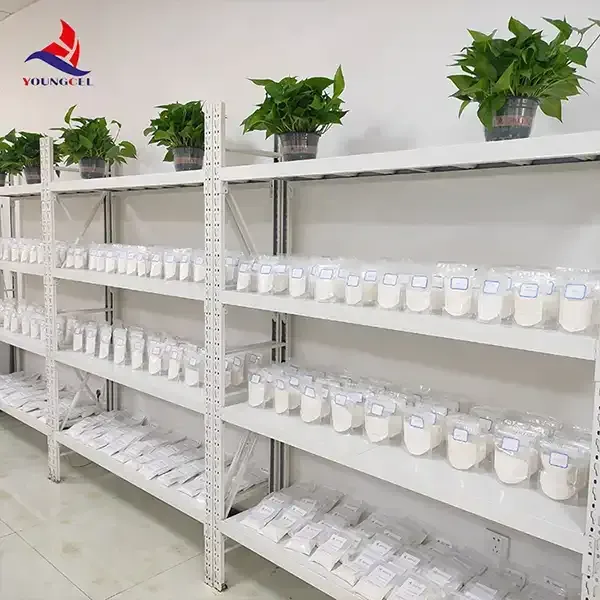The Importance of Cellulose Coating in Modern Applications
Cellulose, a natural polymer derived from plant cell walls, has increasingly gained attention in various industries due to its unique properties and versatility. Among its many applications, cellulose coating stands out as an eco-friendly and effective solution for enhancing surfaces and materials. This article explores the significance of cellulose coatings, their benefits, and their applications across diverse fields.
What is Cellulose Coating?
Cellulose coating refers to the application of a layer of cellulose-based material onto a surface to provide protection, enhance aesthetics, or impart specific functionalities. This coating can be derived from different cellulose sources, including wood pulp, cotton, and even microbial sources. It is biodegradable, non-toxic, and renewable, making it an attractive alternative to synthetic coatings that often feature harmful chemical components.
Key Benefits of Cellulose Coating
1. Environmental Sustainability One of the most significant advantages of cellulose coatings is their environmental impact. As a biodegradable material, cellulose coatings break down naturally, reducing landfill waste and pollution. Their renewable sourcing also contributes to sustainability, aligning with the growing demand for eco-friendly products.
2. Biocompatibility Due to their natural origin, cellulose coatings are biocompatible, making them suitable for applications in the food, pharmaceutical, and healthcare industries. They do not leach harmful chemicals, ensuring that consumer products remain safe and healthy.
3. Excellent Barrier Properties Cellulose coatings provide excellent barrier properties against moisture, oil, and gases. This feature is particularly beneficial in packaging applications, where maintaining product quality and extending shelf life are crucial. By acting as a barrier, cellulose coatings help to preserve the freshness of food items and prevent spoilage.
4. Versatile Applications The versatility of cellulose coatings allows them to be used in a wide range of applications. In the food industry, they are employed as edible coatings for fruits and vegetables, extending their shelf life while being completely safe for consumption. In textiles, cellulose coatings can enhance water resistance, stain resistance, and durability without compromising breathability and comfort.
cellulose coating

5. Improved Aesthetic Qualities Cellulose coatings can enhance the visual appeal of products by providing a smooth, glossy finish. They can be easily tinted or blended with other materials for decorative effects, making them popular in industries such as cosmetics and consumer goods.
Applications of Cellulose Coating
Cellulose coatings find applications in numerous sectors
- Food Industry As an edible coating, cellulose can help maintain the freshness of fruits and vegetables, provide moisture control, and even enhance flavor profiles. It serves as a natural preservative, offering a healthier alternative to synthetic coatings.
- Pharmaceuticals and Healthcare In the pharmaceutical industry, cellulose coatings are used in tablet formulations to control the release of active ingredients and provide a protective layer against environmental factors. These coatings are also used in wound dressings due to their biocompatibility and ability to promote healing.
- Cosmetics Cellulose coatings are increasingly popular in cosmetics and personal care products, where they are used to provide a smooth application and enhance the aesthetic qualities of various formulations.
- Packaging The packaging industry benefits from cellulose coatings due to their excellent barrier properties. They can be applied to paper and cardboard materials, enhancing their protective capabilities while remaining eco-friendly.
Conclusion
As industries continue to seek sustainable and effective solutions, cellulose coatings present an ideal option that balances performance with environmental responsibility. Their unique properties, coupled with a wide range of applications, promote the use of cellulose as a viable alternative to synthetic coatings. As research and technology advance, the potential for cellulose coatings is likely to expand, paving the way for innovations that contribute to a more sustainable future.
-
Premium Detergent Grade HPMC Hydroxypropyl Methylcellulose: Superior Thickening & StabilityNewsAug.31,2025
-
HEC 100000 Hydroxyethylcellulose for Paint | Superior ThickeningNewsAug.30,2025
-
Wall Putty Rdp Powder Packaging DesignNewsAug.29,2025
-
Introduction to Hpmc Hydroxypropyl Methyl CellulosNewsAug.29,2025
-
Hpmc Industri Grade IntegrationNewsAug.29,2025
-
How to Choose the Right Construction AdhesiveNewsAug.29,2025




